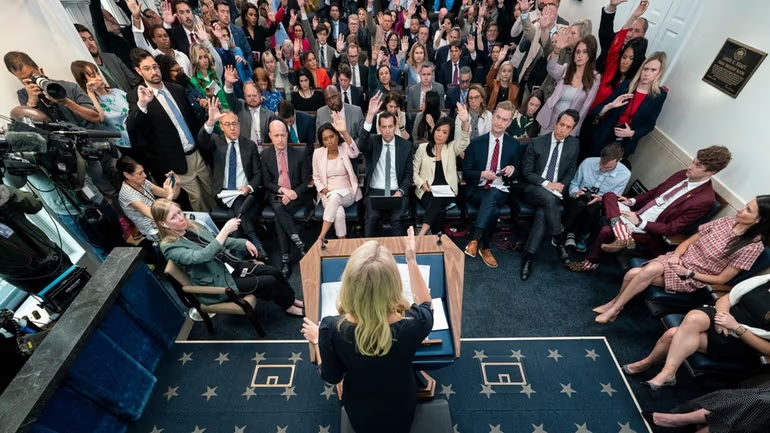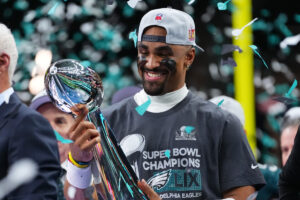
How will Buckeyes justify putting aside their dignity to visit the White House to speak with a misogynist? | Letter
The decision to engage in political gestures, especially those involving public figures with controversial reputations, is often fraught with complexities. Recent discussions have surrounded the possibility of a group of Buckeyes, the athletes of Ohio State University, visiting the White House to meet with the sitting president, who has been accused by many of having misogynistic tendencies. This letter aims to explore the ethical quandary of such a visit, examining whether there can ever be a justification for setting aside dignity and principles in pursuit of a perceived greater good.
Historical Context and the Role of Sports Figures in Politics
Sports and politics have long been intertwined, whether through athlete activism, national pride, or political endorsements. The White House visit for championship-winning teams has become a near-sacred tradition, one that often transcends political divides. Throughout history, athletes and teams have been welcomed to the White House under both Republican and Democratic administrations. These visits typically symbolize national unity, the celebration of achievement, and the honoring of excellence in sports.
However, what happens when the leader of the country holds controversial views that run counter to the values one holds dear? The dilemma becomes even more pronounced when the leader’s alleged behavior — in this case, accusations of misogyny — stands in stark contrast to the ideals of respect, inclusion, and equality that are fundamental to the world of sports. For the Buckeyes, a team that represents unity, teamwork, and respect, to visit the White House in this context raises crucial questions.
Dignity and the Personal Responsibility of Athletes
Athletes, especially those at the collegiate level, are not only seen as role models in their communities, but they also represent the ideals of their universities and the values they uphold. Ohio State University, like most educational institutions, champions principles of diversity, inclusion, and respect for all individuals, regardless of gender, race, or background. As athletes, the Buckeyes are held to a higher standard. Their actions on and off the field can influence not only the perception of the university but also the wider community.
When confronted with a figure who allegedly promotes misogyny, an athlete faces a personal conflict: how to reconcile personal values with the honor of meeting the president. This is particularly true for women athletes, who may feel a heightened sense of betrayal, knowing that a public endorsement — even through a visit — could be seen as tacit approval of the president’s attitudes toward women. The dilemma, therefore, is not simply whether or not to attend but whether attending serves the greater good or compromises one’s integrity.
Misogyny and Its Impact on Society
Misogyny, in its various forms, can perpetuate harmful societal norms that undermine the rights and dignity of women. The impact of such attitudes is far-reaching, influencing everything from politics to personal relationships, and it often manifests in harmful policies or rhetoric that adversely affect women’s health, safety, and economic opportunities. A leader who perpetuates misogyny creates an environment where such values are normalized, and those who associate with such a figure risk legitimizing these beliefs.
If the Buckeyes were to visit the White House, they would need to be acutely aware of the potential message they are sending. It would be a message that says, “We are willing to set aside the values of respect and equality in exchange for honor and recognition.” This is not a trivial matter, and it places a significant burden on the athletes to ensure that their actions align with the ethical standards they aspire to uphold.
The Politics of the White House Visit: A Platform for Advocacy?
There is a common argument made that meetings with controversial figures, even those with deeply problematic views, can be used as opportunities to enact change. The White House is a powerful platform, and by attending, the athletes could potentially engage in a dialogue that highlights the issues they care about, such as gender equality, the protection of women’s rights, and the importance of combating misogyny. However, the question must be asked: Would this be an authentic and effective form of advocacy, or would it be seen as a form of endorsement?
Consider the example of athletes like Colin Kaepernick or Muhammad Ali, who used their platforms to challenge societal norms. Both men risked their careers and reputations to make bold statements, but they did so with conviction and a clear sense of purpose. If the Buckeyes were to meet with a president accused of misogyny, they would need to determine if they, too, could leverage the visit for a greater purpose, using their collective voice to advocate for women’s rights and equality. However, without a clear and deliberate plan for such advocacy, the visit may risk being perceived as nothing more than an act of submission to power.
The Dilemma of ‘Staying Above the Fray’
Another perspective that often emerges in discussions like this is the idea of athletes remaining apolitical — of staying above the fray and not involving themselves in the ideological battles that divide the country. Some may argue that the Buckeyes, as athletes, should focus on their craft and not concern themselves with the political environment surrounding them. This perspective suggests that sports are a realm apart from politics, and the athletes should not be required to make statements about the political landscape.
However, this view fails to account for the influence athletes have on the cultural narrative. Their actions, whether on the field or off, can inspire millions of fans and provide a sense of unity or division. If athletes choose to remain silent or neutral in the face of misogyny, they may unintentionally contribute to the normalization of these harmful ideologies. While it is true that sports and politics are often seen as separate spheres, the reality is that the influence of athletes extends far beyond the game itself. In this context, a White House visit with a president accused of misogyny cannot be regarded as a simple, neutral act.
The Buckeyes’ Opportunity for Leadership
As members of a highly visible and respected team, the Buckeyes have the opportunity to take a stand. By using their platform, they can choose to model leadership that goes beyond the field of play. Their response to the invitation to the White House could serve as a defining moment — one that speaks to their commitment to the values of equality, respect, and human dignity.
Leadership in the world of sports is often measured by the ability to inspire others, to act as role models for future generations. The Buckeyes have the opportunity to demonstrate that they are not just athletes, but leaders who take their responsibilities seriously. This may mean refusing to visit the White House, making a bold statement against misogyny, and standing in solidarity with those who are marginalized and oppressed. Or it may mean visiting with a clear, powerful message that addresses the president’s views and sets forth an agenda for change.
A Crossroads of Ethics, Politics, and Social Responsibility
The question of whether the Buckeyes should visit the White House, given the accusations of misogyny against the president, is not one that can be answered easily. It is a question that requires deep reflection on personal values, the ethics of endorsement, and the responsibilities that come with being a public figure.
In the end, this is a decision that the athletes must make collectively and with full awareness of the potential consequences. Whether they choose to attend or not, their actions will speak volumes. What is most important is that the Buckeyes understand the weight of this decision and ensure that they are not merely complying with tradition or seeking honor for themselves, but rather standing firm in their commitment to the values that truly matter: dignity, respect, and equality for all.





